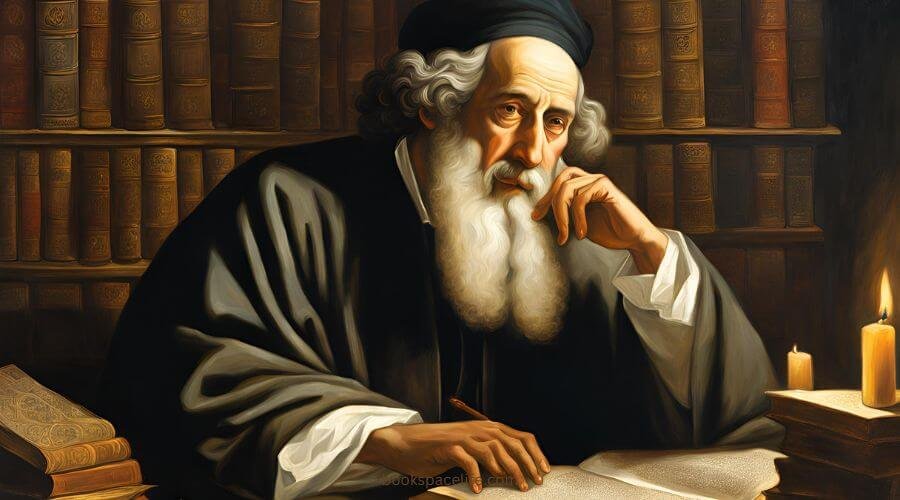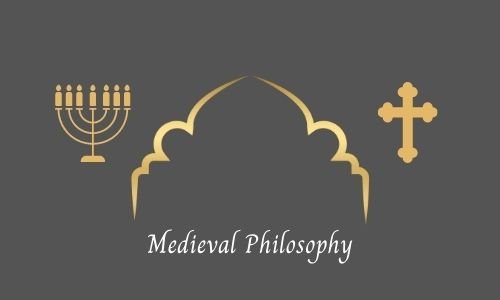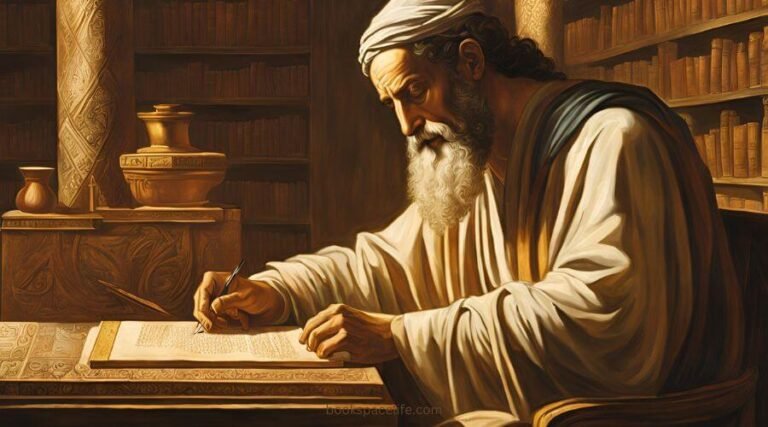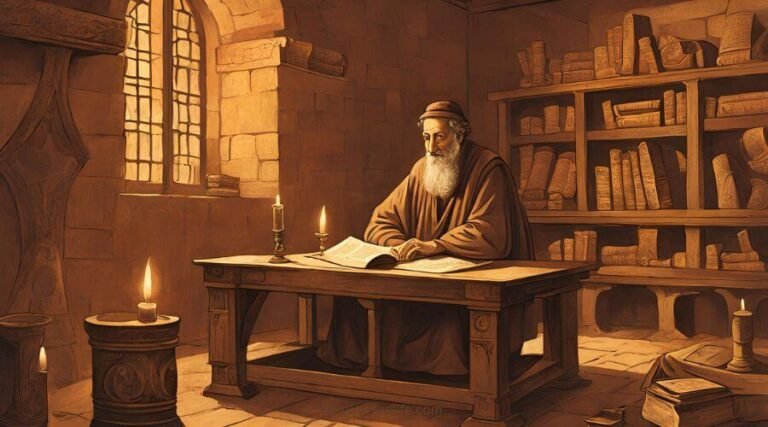Philo of Alexandria
Hasdai Crescas: A Pioneering Jewish Philosopher of the Late Middle Ages
Hasdai Crescas (c. 1340–1410) was one of the most influential Jewish philosophers and theologians of the late medieval period.
His works and ideas represented a bold and critical response to the philosophical and theological challenges facing Jews in the midst of significant political, religious, and social upheaval.
Crescas’ intellectual journey, marked by his deep engagement with Aristotelian philosophy, Jewish mysticism, and theological inquiries, reflects a unique synthesis of reason and faith, offering new directions in both Jewish and general philosophy.
Living during a time when Jewish communities in Spain were facing increasing persecution and intellectual isolation, Crescas wrote with the goal of defending Jewish beliefs while also engaging with the dominant philosophical traditions of his time.
His contributions to Jewish thought, particularly in the realms of philosophy and theology, continue to resonate today as foundational works in the study of medieval Jewish philosophy.
This blog post will explore Hasdai Crescas’ early life, education, travels, philosophy, and intellectual legacy, offering an overview of his lasting impact on Jewish philosophy and beyond.
Table of Contents
(1) Early Life and Education
Hasdai Crescas was born around 1340 in the thriving Jewish community of Zaragoza, Spain. Zaragoza was an intellectual center at the time, where Jewish scholars engaged with both Islamic and Christian scholars in a dynamic exchange of ideas.
Crescas was born into an elite family, with his father being an important figure in the Jewish community. This family background provided him with the resources and opportunities to pursue an extensive education.
From a young age, Crescas was exposed to traditional Jewish learning, including the study of the Torah, Talmud, and Jewish law (halakhah).
However, he was also strongly influenced by the broader intellectual trends of his time. Living in Spain, he had access to the works of Arabic philosophers such as Avicenna (Ibn Sina) and Averroes (Ibn Rushd), both of whom had an enormous impact on Western thought during the Middle Ages.
Crescas was particularly drawn to Aristotelian philosophy, which dominated both Christian and Islamic intellectual life.
Despite his immersion in these philosophical traditions, Crescas remained firmly rooted in his Jewish heritage.
He was deeply committed to reconciling Jewish belief with rational inquiry, a task that would define his intellectual output and later philosophical legacy.
(2) Travels and Political Context
While much of Crescas’ life was centered in Spain, especially in Zaragoza, his intellectual journey was shaped by the broader political and religious context of medieval Iberia.
The time during which Crescas lived was marked by political instability and conflict, both within Jewish communities and between Jews, Christians, and Muslims.
The 14th century in Spain was a period of increasing tension for the Jewish community. The decline of the Muslim rule in Spain (after the fall of Granada in 1492) and the rise of Christian monarchs like Ferdinand and Isabella meant that Jews faced increasing social and political pressures.
The Jews of Spain had to navigate a precarious situation—one in which they were subject to Christian laws and attitudes, yet were also often pivotal players in the intellectual and financial life of the kingdom.
Crescas’ life unfolded against this backdrop of social and religious turmoil. He was involved in the political life of the Jewish community, which at times included advocating for Jewish interests before Christian authorities.
His intellectual career was deeply influenced by the challenges faced by the Jewish community in Spain, including the increasing persecution of Jews and the growing influence of Christian philosophy.
This environment of both intellectual flourishing and perilous political realities would shape his philosophical and theological outlook.
(3) Philosophical Contributions
Hasdai Crescas is best known for his work Or Adonai (“The Light of the Lord”), a systematic philosophical treatise that served as a response to the dominant Aristotelian philosophy of the time.
In this work, Crescas addressed a range of fundamental issues in Jewish theology and philosophy, most notably the nature of God, free will, the problem of evil, and the relationship between reason and faith.
One of Crescas’ most critical philosophical contributions was his challenge to the prevailing Aristotelian view of the universe.
While earlier Jewish philosophers like Maimonides had adopted a largely Aristotelian framework to reconcile Jewish theology with rational philosophy, Crescas departed from this approach.
He was critical of Aristotle’s notion of a perfect, unchanging universe governed by necessity and instead emphasized the role of God’s active will in shaping the world.
Crescas argued that the universe was not governed by eternal, immutable laws, as Aristotle proposed, but rather by the dynamic, creative will of God.
This perspective was a radical departure from both Aristotelian and classical Jewish thought.
In Crescas’ view, God’s will could intervene in the world, shaping events and outcomes in ways that could not be explained purely through natural laws.
This understanding provided a more robust role for divine providence in human affairs, allowing for the possibility of miracles and divine intervention.
One of Crescas’ most significant contributions was his approach to the problem of free will. In contrast to Maimonides’ view of divine foreknowledge, Crescas argued that human beings possess genuine free will, and that God’s knowledge does not constrain human choices.
This had significant theological implications, particularly for Jewish ethics, as it affirmed human responsibility for actions and choices.
Crescas was also deeply concerned with the problem of evil. In Or Adonai, he explored the nature of evil in a way that both responded to philosophical concerns and addressed Jewish theological questions.
While he rejected the idea that evil could be purely accounted for by human ignorance or sin, he nonetheless emphasized the limitations of human understanding in comprehending God’s role in permitting evil in the world.
For Crescas, evil was not a product of God’s nature but the result of human misuse of free will in a world that allowed for choice.
Another notable aspect of Crescas’ philosophy was his rethinking of the relationship between reason and faith.
In his time, Jewish philosophers, particularly Maimonides, had attempted to reconcile philosophical reason with religious belief.
Crescas, however, was more skeptical of the capacity of reason alone to provide ultimate understanding of divine truths.
While he believed in the power of reason, he also maintained that faith and revelation played a necessary role in human understanding of God. This balance between reason and faith was a cornerstone of his intellectual approach.
(4) Influence and Impact
Hasdai Crescas’ intellectual contributions were not only significant in his own time, but his ideas had a lasting impact on both Jewish and general philosophical thought.
His critique of Aristotelian philosophy and his reorientation of Jewish theology influenced later Jewish thinkers, particularly in the Renaissance and early modern periods.
Figures like the philosopher Baruch Spinoza, who was himself deeply critical of the traditional metaphysical views of God and nature, were influenced by the radical theological shifts Crescas initiated.
Crescas’ emphasis on divine omnipotence and free will paved the way for later Jewish thinkers to explore these topics more deeply, leading to new developments in Jewish mysticism, philosophy, and theology.
His intellectual legacy also contributed to the development of the Kabbalah, as his works resonated with later Kabbalists who sought to reconcile rational thought with mystical experiences of God.
While his philosophical ideas were advanced for his time, Crescas’ critique of Aristotelianism and his advocacy for divine omnipotence also played an important role in the intellectual debates of the wider medieval world.
His critique of the natural world as a system of necessary causes also echoed in the philosophical traditions that led to the development of early modern science.
Crescas’ works, particularly Or Adonai, were widely read and discussed among Jewish scholars for centuries.
His ideas found their way into Christian philosophical discourse as well, influencing both Jewish and non-Jewish philosophers in Spain, Italy, and beyond.
(5) Conclusion
Hasdai Crescas stands out as one of the most original and groundbreaking Jewish philosophers of the late Middle Ages.
His work offered a bold challenge to both the prevailing Aristotelian framework and the traditional Jewish theological system, promoting a more dynamic, interventionist view of divine providence and human freedom.
Crescas’ influence extended far beyond his time, laying the foundation for future generations of Jewish and non-Jewish thinkers to engage with the fundamental questions of existence, God, and the nature of human free will.
His integration of faith and reason, his innovative views on the problem of evil, and his rethinking of divine omnipotence continue to make him a figure of great importance in the history of Jewish thought.
In a world marked by religious conflict and intellectual ferment, Hasdai Crescas emerged as a philosopher who sought to reconcile reason with faith while engaging critically with the dominant ideas of his time.
His legacy is one of intellectual depth, spiritual resilience, and an enduring commitment to uncovering the mysteries of God and human existence.








